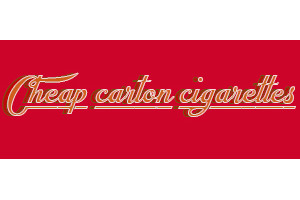newport cigarettes price in new york
The Rising Cost of Newport Cigarettes in New York: A Closer Look

Image Source: Pexels
Keywords: Newport cigarettes price in New York, cigarette tax increase, smoking rates, anti-tobacco measures, menthol ban, tobacco cessation programs, illicit sales, convenience store groups
Introduction
newport cigarettes price in new york
Smoking has long been a contentious issue, and New York is no stranger to the debate. Recently, there has been a significant focus on the rising cost of Newport cigarettes in the state. The New York government has implemented measures to combat smoking rates, including increasing taxes on cigarettes. However, these actions have sparked concerns among anti-tobacco advocates and convenience store groups. In this article, we will delve deeper into the reasons behind the price increase, the potential consequences, and the ongoing efforts to reduce tobacco usage in New York.
The Tax Increase and Smoking Rates
One of the key drivers behind the rising cost of Newport cigarettes in New York is the tax increase imposed by the state government. As part of the $229 billion budget plan, the tax on cigarettes will be raised by $1 per pack, making New York one of the most expensive places in the country to purchase cigarettes[^4^]. The aim of this increase is to further discourage smoking and reduce smoking rates across the state.
New York State Senate Majority Leader Andrea Stewart-Cousins expressed the intention behind the tax increase, stating that the government seeks to discourage smoking in general[^4^]. However, some critics argue that this measure alone may only address half of the problem. They believe that it could lead to an expansion of the underground market for illicit cigarette sales[^4^].
The Menthol Ban Debate
In addition to the tax increase, Governor Kathy Hochul’s initial budget included a proposal to ban menthol and other flavored tobacco products[^4^]. However, state lawmakers rejected this specific anti-tobacco measure. Instead, they anticipate that the Biden administration will introduce a nationwide ban on menthol products later this year[^4^]. Senator Stewart-Cousins mentioned that the guidance from the Biden administration suggests a probable ban in the fall[^4^].
Anti-tobacco advocates, such as Michael Davoli from the American Cancer Society, have mixed feelings about the rejection of the menthol ban proposal[^4^]. While they applaud the legislature for increasing the cigarette tax and acknowledge that it will save lives and reduce smoking rates, they believe that more could have been done to combat tobacco usage[^4^].
Tobacco Cessation Programs and Funding
New York has witnessed a significant decline in tobacco usage over the past few decades. However, smoking rates remain higher among low-income individuals and people of color[^4^]. Efforts to address this disparity include the allocation of more than $7 million from a nationwide settlement with e-cigarette maker Juul to increase spending on tobacco cessation programs[^4^].
Michael Davoli emphasized the importance of such programs in driving down smoking rates, stating that the decline in smoking rates is not accidental but rather a result of targeted efforts[^4^]. He also expressed the need to ensure continued funding for tobacco control programs and the prevention of new products, such as Juul and e-cigarettes, from entering the market[^4^].
Concerns from Convenience Store Groups
Convenience store organizations have raised concerns about the tax increase and its potential impact on the illicit cigarette market. Kent Sopris, the president of the New York Association of Convenience Stores, argues that an increase in taxes will further contribute to the percentage of illegal products being sold underground[^4^]. Currently, the state already has a 53% illegal cigarette market share[^4^].
Sopris draws a parallel with the situation in the cannabis market, where the increase in taxes has led to a thriving illegal market[^4^]. He calls for stronger enforcement against illegal tobacco sales in the state and highlights the uncertainty surrounding the costs to retailers, as the tax increase is expected to result in $25 million in lost revenue for the state[^4^].
Conclusion
The rising cost of Newport cigarettes in New York has sparked debates and concerns regarding smoking rates, anti-tobacco measures, and the potential consequences of the tax increase. While the tax increase aims to discourage smoking, critics worry about the expansion of the illicit market for cigarette sales. The rejection of the menthol ban proposal adds another layer to the ongoing discussions surrounding tobacco control. Efforts to fund tobacco cessation programs and address disparities in smoking rates continue, but convenience store groups argue for more enforcement against illegal tobacco sales. As the situation develops, it remains crucial to strike a balance between reducing smoking rates and considering the potential consequences of anti-tobacco measures.
Disclaimer: The views and opinions expressed in this article are those of the author and do not necessarily reflect the official policy or position of any agency or organization.
